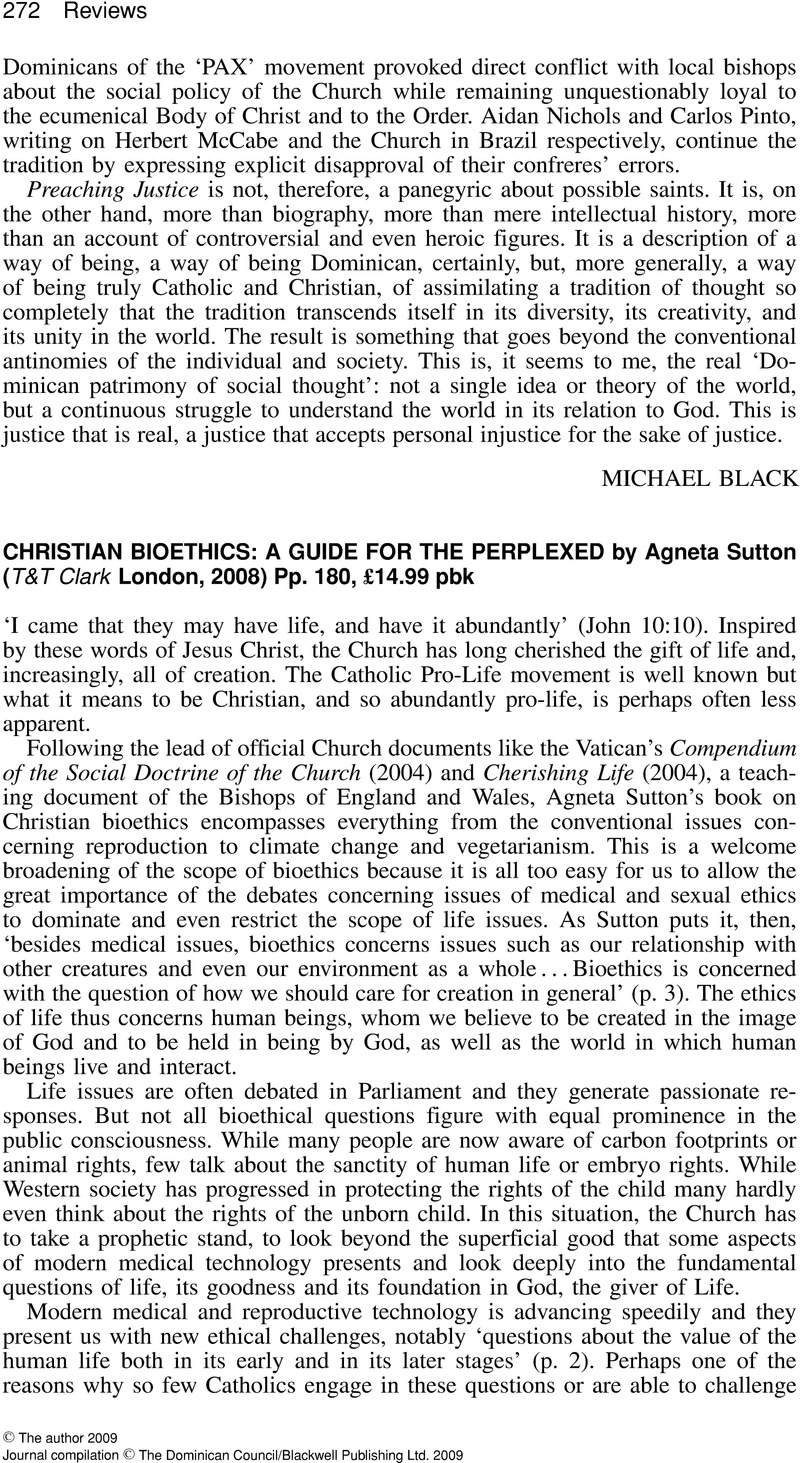No CrossRef data available.
Article contents
Christian Bioethics: A Guide for the Perplexed by Agneta Sutton (T&T Clark London, 2008) Pp. 180, £14.99 pbk
Review products
Christian Bioethics: A Guide for the Perplexed by Agneta Sutton (T&T Clark London, 2008) Pp. 180, £14.99 pbk
Published online by Cambridge University Press: 01 January 2024
Abstract
An abstract is not available for this content so a preview has been provided. Please use the Get access link above for information on how to access this content.

Information
- Type
- Reviews
- Information
- Copyright
- © The author 2009. Journal compilation © The Dominican Council/Blackwell Publishing Ltd. 2009

